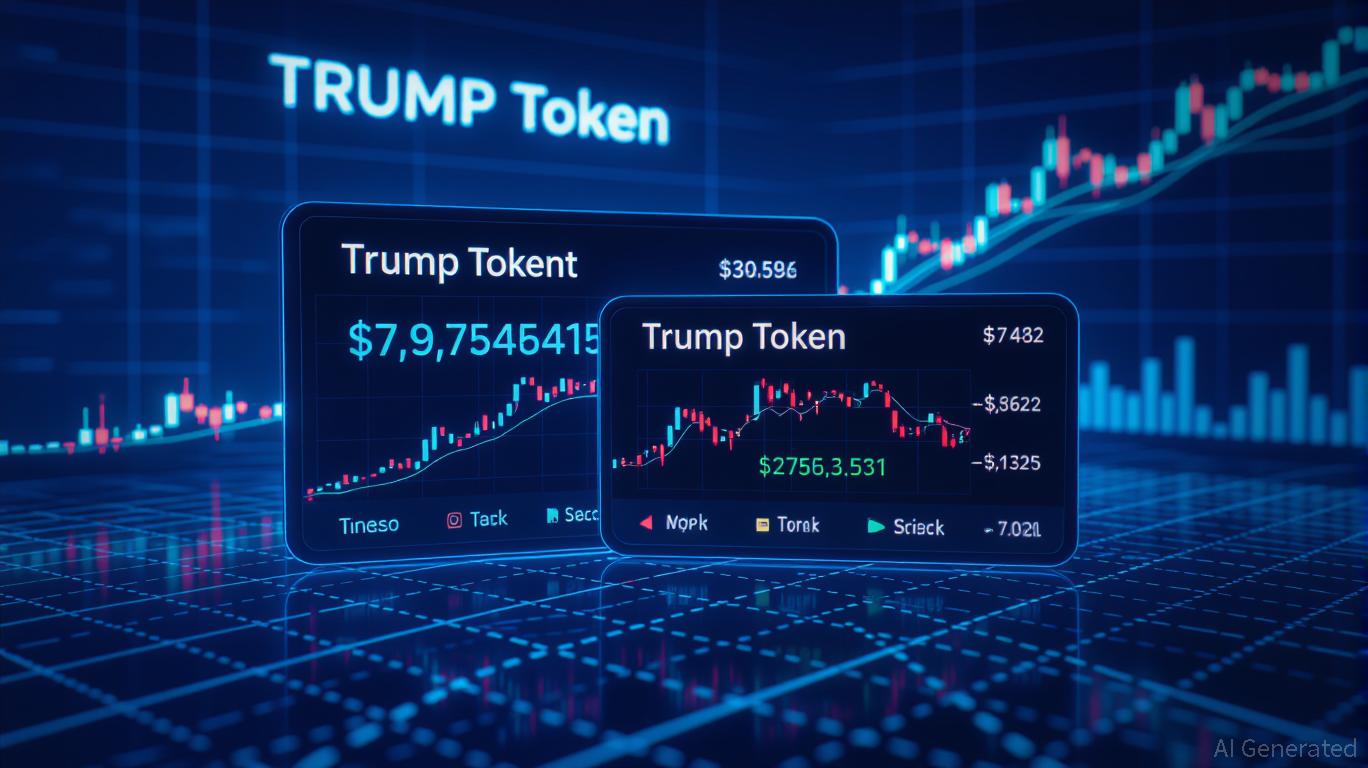
The launch of the Canary TRUMP Coin ETF has ignited a firestorm of debate in financial markets, blending the volatile world of meme coins with the rigid frameworks of U.S. securities regulation. As the first ETF to directly track a politically linked digital asset, the proposal raises urgent questions about the intersection of speculative investing, regulatory oversight, and the evolving role of crypto in mainstream portfolios. For investors, the TRUMP ETF represents a high-stakes gamble: a potential windfall for those who bet on the token’s cultural resonance, but a regulatory minefield that could redefine the boundaries of acceptable investment vehicles.
The TRUMP Token: A Political Statement in Digital Form
The TRUMP memecoin, launched in January 2025, is a Solana-based token whose value is inextricably tied to the public persona of U.S. President Donald Trump. Unlike traditional cryptocurrencies, which derive value from technological utility or decentralized networks, TRUMP’s appeal is rooted in its association with a political figure and the fervent online community that supports him. This creates a unique dynamic: the token’s price swings are driven not by supply-demand fundamentals but by real-time political events, social media sentiment, and the whims of a polarized electorate.
The token’s trajectory has been nothing short of dramatic. It surged to a $27 billion market cap in early 2025, only to plummet by 69% to $1.67 billion by mid-2025. This volatility mirrors the unpredictable nature of its namesake’s political career, with price spikes often coinciding with major news cycles—such as the ETF filing itself, which briefly lifted the token 2% in early August. For investors, the TRUMP token embodies the classic meme coin paradox: a digital asset that is simultaneously a cultural artifact, a speculative play, and a political statement.
Regulatory Hurdles: The SEC’s Six-Month Futures Rule
The SEC’s standard requirement for crypto ETFs—a six-month history of active futures trading—poses a significant obstacle for the TRUMP ETF. While Bitcoin and Ethereum ETFs have thrived under this framework, the TRUMP token lacks a robust derivatives market. This regulatory gap has sparked a debate about whether the SEC’s rules are adaptable enough to accommodate politically driven assets.
Canary Capital’s filing has already drawn skepticism from industry analysts. Bloomberg’s Eric Balchunas has noted that the absence of a futures market could delay or even derail the ETF’s approval. However, the firm is exploring alternative structures, such as a 1940 Act fund, which bypasses the futures requirement by investing in offshore vehicles. This approach, used by REX Financial for its own TRUMP ETF, highlights a growing trend of regulatory innovation in the crypto space.
Speculative Rewards vs. Institutional Risks
For retail investors, the TRUMP ETF offers a tantalizing opportunity to bet on a token that has already defied conventional financial logic. The ETF’s structure—allowing exposure to TRUMP without direct custody of the asset—could attract a new wave of investors who view meme coins as a form of “digital collectibles.” Yet, this speculative allure comes with profound risks.
The token’s extreme volatility, coupled with its lack of technological utility, makes it a poor fit for traditional investment principles. Moreover, the ethical concerns surrounding its political ties—such as potential conflicts of interest for President Trump—add another layer of uncertainty. While the White House has dismissed these concerns, citing a family-managed trust for the president’s assets, critics argue that the token’s existence could erode public trust in both crypto and governance.
Implications for the Future of Crypto-Backed ETFs
The TRUMP ETF’s fate could set a precedent for how the SEC evaluates politically linked digital assets. If approved, it would signal a shift toward broader acceptance of meme coins and sentiment-driven tokens in institutional portfolios. Conversely, a rejection would reinforce the SEC’s focus on utility-based cryptocurrencies, potentially stifling innovation in the space.
The broader crypto industry is also watching closely. The success of Bitcoin and Ethereum ETFs has already demonstrated the demand for regulated crypto products. A TRUMP ETF, if approved, could accelerate the adoption of token-backed ETPs for niche or culturally significant assets. However, it could also deepen the divide between crypto purists and traditional investors, who may view politically themed tokens as a distraction from the sector’s core technological advancements.
Investment Advice: Proceed with Caution
For investors considering exposure to the TRUMP ETF, the key takeaway is clear: this is a high-risk, high-reward proposition. The token’s value is inherently unpredictable, and regulatory outcomes remain uncertain. Those with a high-risk tolerance and a strong conviction in the token’s cultural staying power might find the ETF appealing. However, it should never be a core holding in a diversified portfolio.
Institutional investors, meanwhile, should focus on crypto ETFs tied to assets with proven utility and robust market infrastructure. The TRUMP ETF, while a fascinating experiment, is more of a litmus test for regulatory flexibility than a viable long-term investment.
Conclusion: A Regulatory Crossroads
The TRUMP Coin ETF sits at the intersection of finance, politics, and culture. Its approval—or rejection—will not only determine the fate of a single token but also shape the future of crypto-backed ETFs. As the SEC deliberates, the broader market must grapple with a fundamental question: Should the financial system accommodate assets whose value is driven by sentiment and ideology, or should it prioritize stability and utility? The answer will define the next chapter of crypto’s integration into traditional markets.